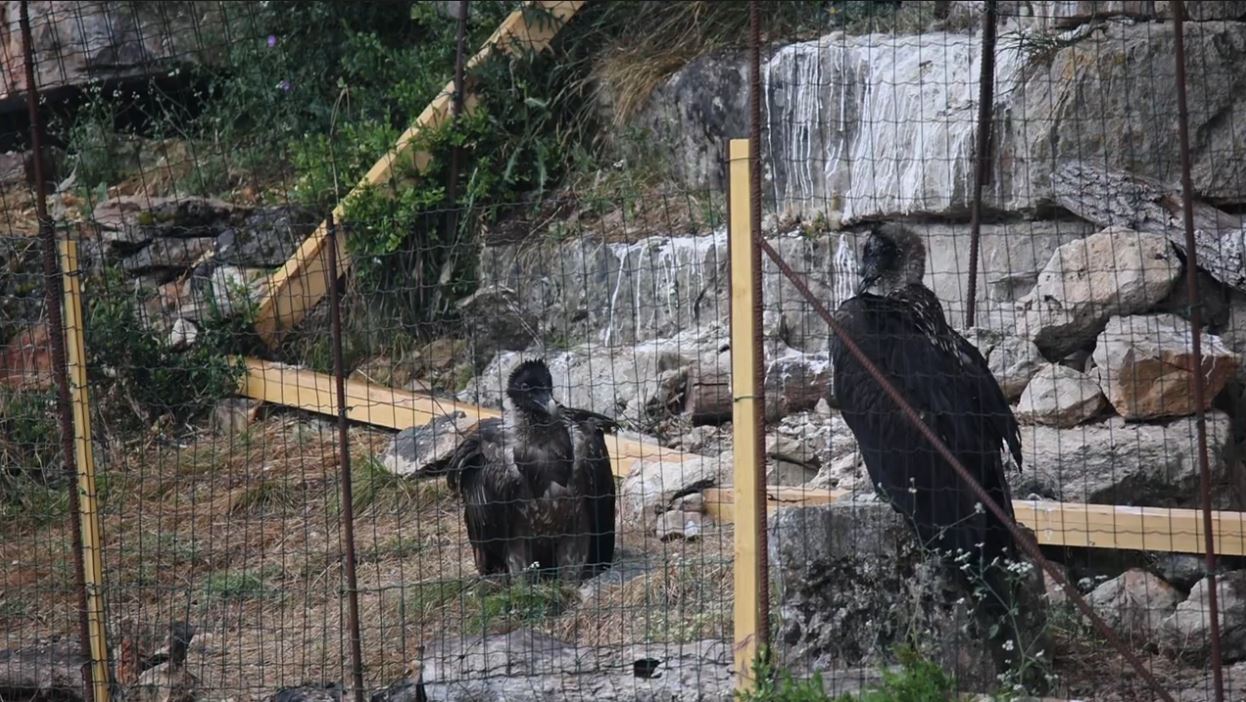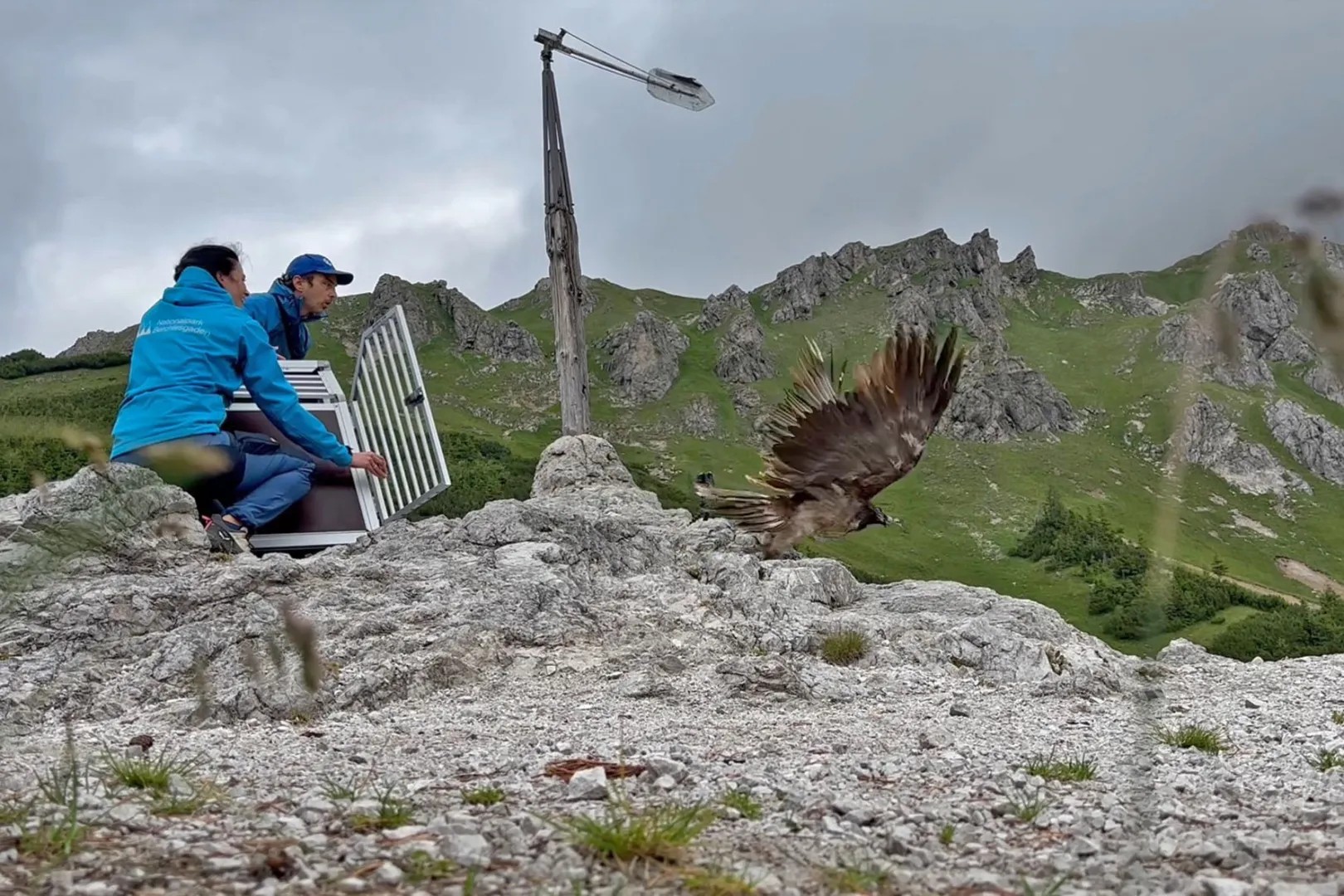
Following the recent news of the third Bearded Vulture pair to begin their breeding season in Andalucía, the team at the Junta de Andalucía’s Department of the Environment spotted a (special) young Bearded Vulture that has not been seen since 2017.
Esperanza

The young vulture spotted is Esperanza, the first chick born in the wild in Andalucía for 30 years since the species went extinct in the region in the 1980s. Esperanza was born in 2015 and the offspring of the region’s successful first breeding pair Toño and Blimunda. Now in her fourth year Esperanza was last seen in the region in 2017 and the GPS transmitter she was fitted with unfortunately malfunctioned leaving the team at the Junta de Andalucía and Fundacion Gypaetus unsure of her location. It was with great surprise and excitement that she has returned to the region, raising hopes that she will reach adulthood and form a territory and become the first wild hatched bird to breed in the wild.
Toño and Blimunda
Toño is now 9 years old, and was released in 2006. He has been regularly seen in Cazorla, but in the first few years after being released he made several trips to the Pyrenees, and once spent a whole summer there. Blimunda is a female released in 2010, and therefore still somehow young.
Bearded Vultures in Andalucía

Bearded Vultures disappeared from the skies of Andalucía in 1986 mainly because of direct persecution, illegal wildlife poisoning and human disturbance of the nesting sites. Led by the Junta de Andalucía, the Fundación Gypaetus, and us here at the Vulture Conservation Foundation, a reintroduction project began in 1996, with the first captive-bred birds, Tono and Blimunda released in 2006. Since 2006 54 birds have been released in the area. With the successful breeding of wild Bearded Vulture every year since the 2014/15 breeding season (except in 2015/16), the project is already a resounding success, and we expect the population to continue to grow.



